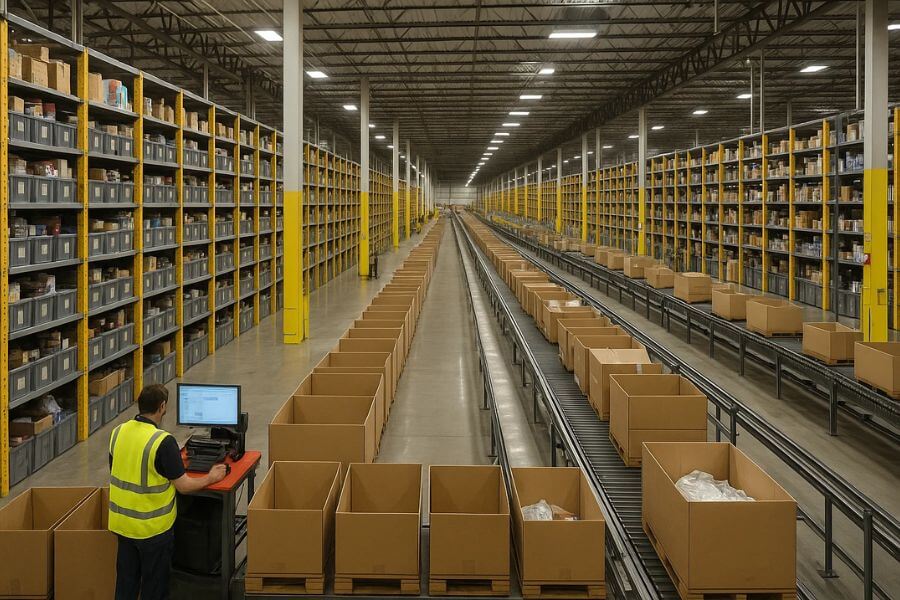While the words, duty and tariff, are sometimes used interchangeably, there are some important distinctions between the two that one should be aware of. Both are a kind of government-imposed taxes that are charged on imports and exports. This is not limited to consumer items since import costs must be included in any foreign shipping plan. While the terms are sometimes used interchangeably, it is vital to understand the differences between taxes, tariffs, and duties.
At the end of the day, each country has its own regulatory requirements with its own set of rates, laws, and administrative paperwork. Generally speaking, the world’s most developed countries prefer minimal tariffs and open trade. NAFTA and the European Union (EU) are examples of free trade agreements that exclude member nations from paying taxes and tariffs. It’s critical to engage with reliable and trustworthy foreign trade partners to guarantee compliance and avoid unexpected fines when you import your items.
What is Duty?
Duty is also a variant of tax levied by the government on imported items. This tax is sometimes referred to as import duty. Furthermore, duty is levied on items produced and distributed within the national boundaries. Though less common in terms of the number of commodities covered, certain export goods are also subject to taxes. This form of levy is sometimes referred to as export duty. Because a duty is comparable to a consumer tax, it is considered an indirect tax.
The government puts a levy on the party that imports goods from another country. The two most well-known forms of duties are excise and customs duties. Customs duty is the term used to refer to the charge placed on products imported from a foreign country whereas the excise duty is a kind of tax placed on manufactured items that are part of an intrastate transaction.
What is Customs?
Duty payments apply whenever you import goods into a nation, and these are called customs or excise duties. They are established by law to determine the efficiency with which a product may be imported. It is an effort to prevent other nations from bringing an excessive amount of previously manufactured goods into the country; taxes may assist increase local production, which in turn supports local employment, local products, and the efficient management of resources.
Duty costs on the majority of consumer items (consumer electronics, clothing, etc.) are typically 5-7 percent of the import value since these products tend to have a lesser economic effect. Duty rates are imposed on certain types of materials and goods, and they are generally determined by the country’s demand for them. There will always be responsibilities; they may vary, but they will never vanish.
International trade discussions often set duties. They range from 0% to 35% of the product’s import value. Duties fluctuate, albeit slowly, since they are negotiated between the nations. Maintaining current knowledge of international relations will assist merchants in determining whether or not their items are subject to variable tariff rates.
What is Tariff?
Tariffs are government-imposed charges on products imported from other countries. When the government applies tariffs on imported items, the domestic market price of such commodities increases. Imposing tariffs on an item results in a reduction in the amount imported from the global market and an increase in the production of those goods in the domestic economy.
Tariffs are classified into two types: import tariffs and export tariffs. Import tariffs are levied on imported products. Similarly, the duties levied on exports are referred to as export tariffs. The government uses import or export tariffs to raise income via tariff collection.
Tariffs on imported items are classified into two broad categories by the authorities. The first kind of tax is ad valorem, which is computed as a proportion of the item’s total value. The second is a tariff that is unique. It is a tax charged on the basis of a flat rate determined by the number of articles or the weight of the shipment.
Why Do We Use Tariffs?
Preserving local businesses and jobs
Tariff imposition is sometimes highly political. When huge amounts of goods are imported into a nation, the likelihood of intense competition from such imported goods might put local businesses and products at risk. To save money and retain profits, these local firms may downsize their personnel and/or relocate their production or manufacturing facilities to another country. This may result in an increase in unemployment and a dissatisfied electorate.
Protecting the interests of domestic consumers
The government may impose a tax on a particular item if it determines that the item is detrimental to public health. For example, the government may impose import limits on specific kinds of food that may create health problems among consumers.
Protecting new industries
Tariffs may be used to protect infant industries, as shown by several developing countries’ Import Substitution Industrialization policy. A growing economy’s government tends to impose taxes on imported commodities, particularly on those experiencing rapid development. Tariffs may result in an increase in the price of imported items and foster the growth of domestically made goods.
Another benefit is the protection it provides for industries on the edge of extinction due to their inability to compete. Tariffs minimize the likelihood and rate of unemployment and enable emerging nations to transition from agricultural to manufacturing economies.
Providing for national security
Certain sectors are seen as strategically crucial to a country’s economy, particularly those that contribute to national security measures in some manner. The government must assist and safeguard these sectors. Governments may put severe tariffs on items that compete directly with such sectors, therefore, protecting their interests.
Retaliatory action
Numerous nations have also imposed tariffs in response to rising imports. It may be applied if the government considers a trade partner is violating acceptable business standards and regulations to establish a dominating position in the market. Retaliation may also be utilized when a commercial partner violates the government’s foreign policy guidelines and goals.
Difference Between Duties vs. Tariffs?
The fundamental difference between the two kinds of taxes is that a duty is levied on certain commodities, regardless of whether they are manufactured locally, imported, or exported. Tariffs, on the other hand, are applied solely to imports and exports to safeguard home manufacturing, limit commerce from a certain nation, and create income for the government. Duty is the amount of money paid as per the government-determined tariff rates. In both circumstances, the government levies the taxes and collects the revenue.
Conclusion
The government levies many forms of taxes on its residents and foreigners living or working, or dealing in any way within the country. Both the terms tariff and duty relate to imposed taxes. While both names are often used interchangeably, there is a fine line between the two. To clarify one last time, tariffs are a kind of direct tax, while duties are a type of indirect tax. Tariffs are imposed on products, while taxes are imposed on consumers.
Tariffs are classified as import tariffs or export tariffs. On the other hand, duties include excise and customs charges. The government levies tariffs and taxes to enhance income through tax collection. Imposing tariffs and charges on commodities imported or exported results in the loss of international exporters and importers to the benefit of local manufacturers, while the government benefits in the form of tax money.











